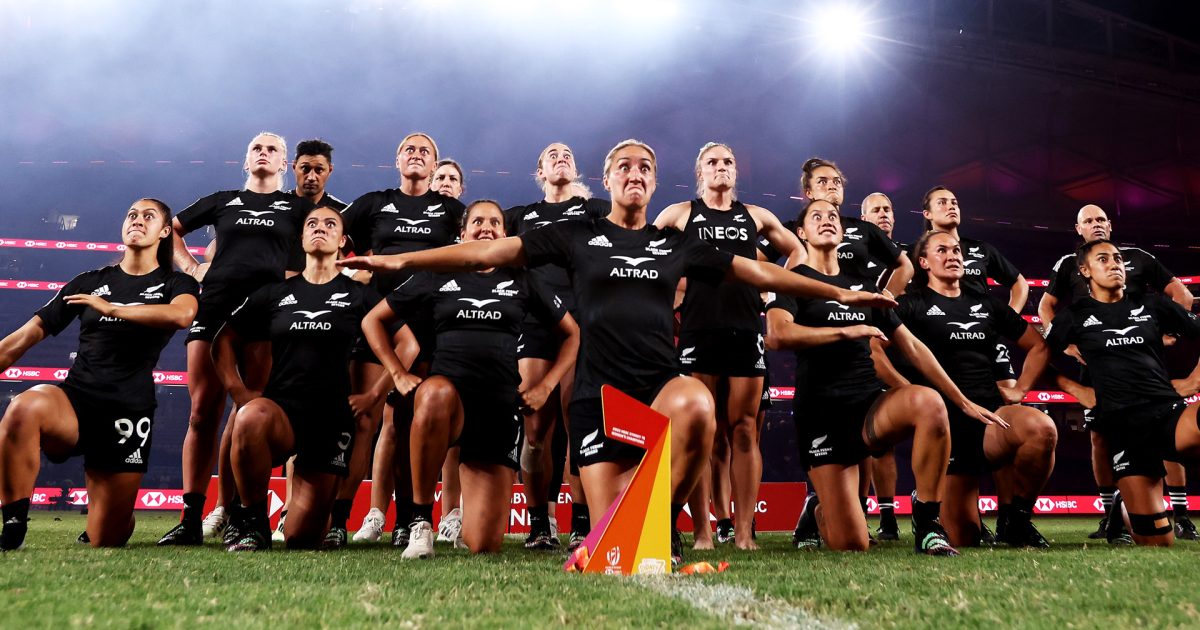Black Ferns Sevens win fourth straight gold in Vancouver with tight win over Australia

The Black Ferns Sevens have won their fourth straight World Rugby Sevens Series event after defeating Australia 19-12 to extend their lead at the top of the Sevens circuit.
The Black Ferns qualified for the final after being pushed to the brink by hosts Canada in the quarter-final, who had a chance to win late but defence held a 10-5 win for New Zealand.
In the semi-final New Zealand smashed France 36-5 to set up the 21st Cup final with rivals Australia. It was a chaotic start with both sides making jittery errors early.
An early error from Charlotte Caslick gave the Black Ferns their first opportunity, from the scrum the Australian defence stayed strong until a drop ball from Stacey Waaka on the right edge handed possession back.
It took one phase for another uncharacteristic Caslick error handed possession straight back after a scrum play went wrong.
The Black Ferns looked to have capitalised on the mistake through whiz kid Jorja Miller who burst through multiple tackles to get into the in-goal but was stopped by a miraculous tackle by Maddison Levi in the process of putting the ball down.
Levi punched the ball out much to the dismay of the 19-year-old Sevens star, but a penalty won by Waaka gave the Black Ferns another shot and World Cup hero Sarah Hirini took a quick tap to score under the posts and take a 7-0 lead.
PLOT TWIST AFTER PLOT TWIST 👀
ADVERTISEMENTWhat a match we have on our hands in Vancouver!#HSBC7s | #Canada7s pic.twitter.com/cdja6yZZxl
— World Rugby 7s (@WorldRugby7s) March 6, 2023
Australia hit back with some promising play with Caslick taking charge, before Madison Ashby cut through past Hirini with some smart footwork to level scores 7-all.
After the restart the Ferns chanced their arm right on halftime and some playmaking from Hirini on the right edge found Waaka with an offload around the corner down a tight corridor. A smiling Waaka raced away 60 metres to give the Ferns a 14-7 lead at half-time.
Hirini again sparked another break early in the second half as the Ferns piled on the pressure. Some brilliant footwork from Shiray Kaka laid a platform and Miller was given another chance to score, this time coasting over to extend the lead to 19-7.
Kaka was rocked with a massive hit by Maddison Levi in the lead up and did well to hang onto possession as the Black Ferns scored on the next phase.
Penalties allowed Australia to get back into Ferns’ territory and it was Caslick’s ball playing that created some momentum that was finished off by the No 7 to close the gap to 19-12.
With two minutes remaining the Black Ferns were penalised for going off feet at their own ruck, but their defence held Australia off and forced a long kick.
What an eventful final 🤯@nz_sevens are your #Canada7s Champions#HSBC7s pic.twitter.com/PsjLEzUqne
— World Rugby 7s (@WorldRugby7s) March 6, 2023
Theresa Fitzpatrick came up with a key ruck penalty to win back possession with 40 seconds left to spoil the Australians last chance.
Hirini was handed player of the final which included a key try and multiple breaks to get the Ferns attack firing.
After losing to Australia in the final of the Dubai leg, the Black Ferns Sevens have now taken gold in Cape Town, Hamilton, Sydney and now Vancouver.
In the men’s final, Argentina took on France and claimed a second title in the 2022/23 series with a 33-21 win.














































































